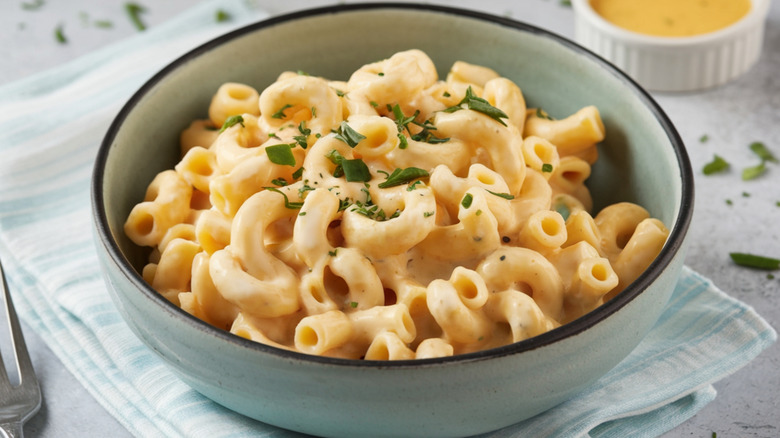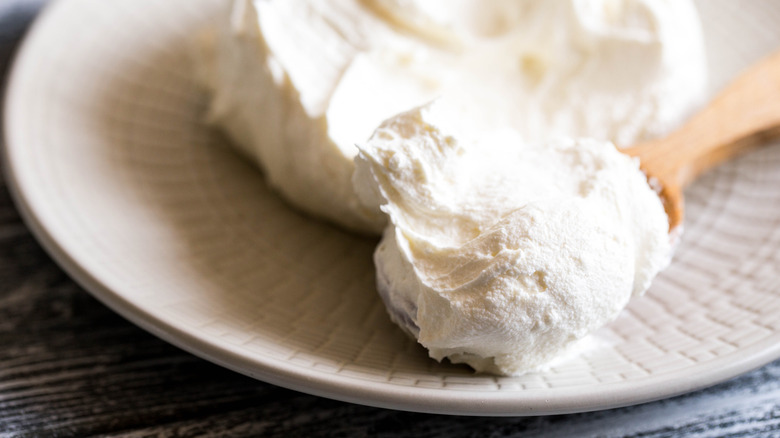How Using Mascarpone Impacts Your Mac And Cheese
Macaroni and cheese is a food steeped in tradition. It's often defined by golden-hued beauties such as cheddar, Monterey Jack, Gruyère, smoked gouda, and many other of the best cheeses to use in your homemade mac and cheese. However, for those seeking a touch of elegance, mascarpone, a heavy cream-based cheese with Italian roots that's beloved for its versatility in sweet and savory recipes, stands out as a sophisticated game-changer.
Mashed spoke with Roseanne Crave, sales and marketing manager at Crave Brothers Farmstead Cheese in Waterloo, Wisconsin, about how this dairy darling brings an elevated dimension to this classic comfort food. "When used in mac and cheese, [mascarpone's] velvety texture and subtle sweetness enhance the dish, creating a creamy base that complements the other ingredients," Crave says. Mascarpone boasts a gentle, buttery character, which sets it apart from cheeses with sharper profiles.
While cheddar has a robust, bold tang, and Gruyère offers a nutty, slightly salty essence, mascarpone lends understated notes that enhance rather than compete. "Mascarpone adds richness without overpowering the other flavors, allowing the other components of the dish to shine through beautifully," Crave explains. The result is a bite that feels simultaneously simple and fancy.
Mascarpone creates a silky smooth mac and cheese
Mascarpone's velvety texture makes it a stellar addition to your cheese pantry. Its spreadability is why it works so well in countless treats, sides, and entrées like tiramisu, mashed potatoes, and of course, macaroni and cheese. Its naturally silken structure melds quickly and effortlessly into a warm sauce. As Crave emphasizes, "Its rich, creamy consistency also helps add body to the sauce, gently thickening it and creating a luxurious mouthfeel."
Though delicious in their own right, harder, aged cheeses like cheddar or Gruyère can sometimes yield a sauce that separates or becomes grainy if not handled with care. In fact, some cheeses melt better than others due to their higher moisture content and balanced protein structure, allowing them to soften smoothly when heated. Meanwhile, mascarpone acts as a stabilizing agent, harmonizing the mixture and forming that unmistakable glossy finish. Even with its mild vigor, mascarpone proves that the simplest ingredients often make the most powerful impact.

